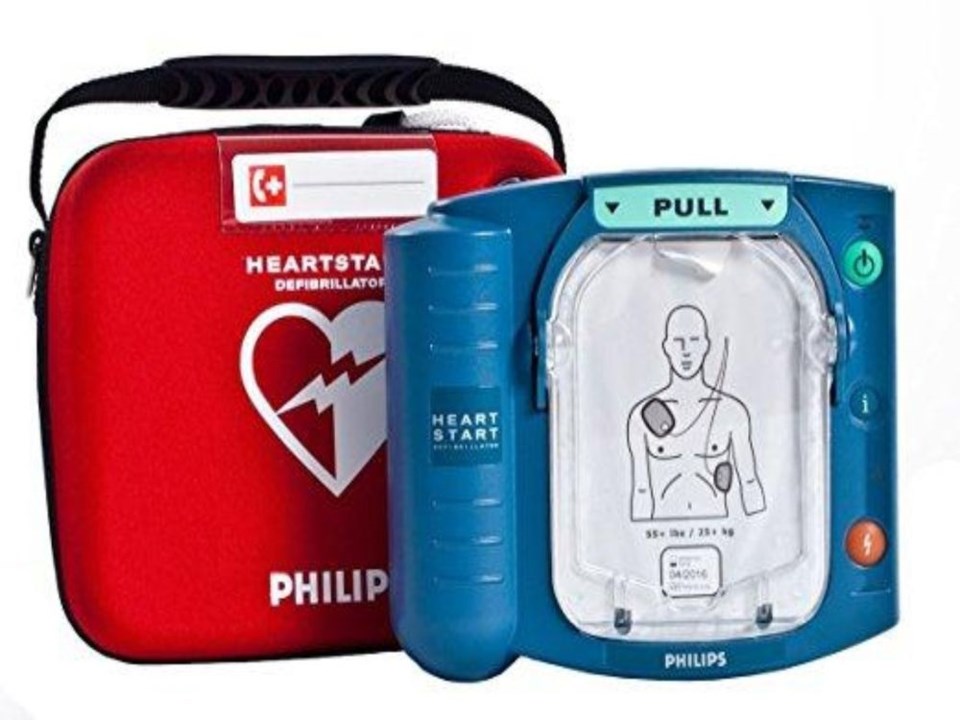The Preeceville Hospital Auxiliary continues to improve lives with the recent donation of an automated external defibrillator (AED) to the Preeceville and District Health Centre.
"The auxiliary felt it necessary that the health centre be equipped with an AED in a building which employs many people and has many visitors," said Elaine Christopherson, president of the auxiliary. "There is not always a Registered Nurse (RN) on duty to use the larger monitor defibrillator machine at the hospital. Anyone is capable of using one with following the simple instructions on the machine," she said.
It is located in a central location on the wall across from the nurses’ stations on the long term side.
An��automated external defibrillator��(AED) is a portable electronic device that automatically diagnoses the life-threatening������of����(VF) and��, and is able to treat them through��, the application of electricity which stops the arrhythmia, allowing the heart to re-establish an effective rhythm, according to online information.
With simple audio and visual commands, AEDs are designed to be simple to use for the layperson, and the use of AEDs is taught in many��,��, and����(BLS) level����(CPR) classes.
The portable version of the defibrillator was invented in the mid-1960s by����in��,��.




